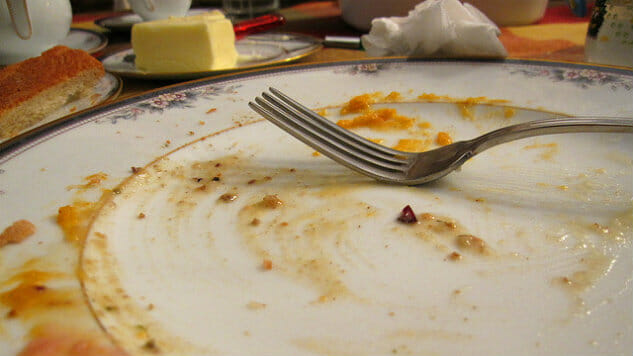Should Children (and Adults) Clean their Plates?
The Cultural Beliefs That Fueled My Disordered Eating

My friend’s grandmother left the room abruptly.
“You see? You upset her,” my mother said. I hung my head in shame.
She was upset because I didn’t want to eat all of the food on my plate. As a visitor in her home, this was seen as incredibly disrespectful. My fork hovered over my plate, which was chock-full of food I didn’t like — avocado in salad, beans, meat — in serving sizes enough to fill most adults. I was seven, a picky eater, and severely upset that I was being forced to eat.
But I had to eat my lunch, and I had to eat it all. In my culture, it’s a mortal sin not to finish your food.
I come from a family deeply influenced by a number of cultures. We live in South Africa. My immediate family members are white English- and Afrikaans-speaking South Africans. My maternal aunt and cousins, with whom I spent most of my childhood with, are Muslim.
Many anthropologists have discussed the cultural function of food and eating, as well as the purpose of food-related rituals. Our attitudes and behavior around food is important because it signifies whether we belong to a culture, or whether we’re an ‘outsider’. Similarly, our table manners and will to eat has cultural importance.
My culture — and many others around the world — is one that holds the idea that people should eat all the food on their plate. For children especially, leaving food on your plate is seen as impolite and wasteful, something which is cause for conflict in a working-class home like my own.
Being forced to eat everything on your plate might not seem like a big deal to most adults, but when you’re an anxious 7-year-old like I was, it’s hugely distressing. For a good decade of my life, dinner was a nightmare for me and my family. I hated the textures of certain foods. I disliked sweetness meddling in otherwise savory dishes, so butternut and pumpkin was a no-go. I’d beg to be given less meat, I’d try to negotiate with my parents, I’d subtly pass my squash to my more-sympathetic grandfather. It was a dance I did every night — one that would impact my relationship with eating forever.
Being polite around food is one thing, but when you internalize those messages in an unhealthy way, as I did, it’s hard to detach your self-worth from the way you eat. While it’s probably normal for someone to be conscious of whether their actions are polite, it’s not normal to have the intrusive thoughts I did. For years, I’d often have anxiety around eating sit-down meals, to the point where all I could think of was how I came across to others.
-

-

-

-

-

-

-

-

-

-

-

-

-

-

-

-

-

-

-

-

-

-

-

-

-

-

-

-

-

-

-

-

-

-

-

-

-

-

-

-








































